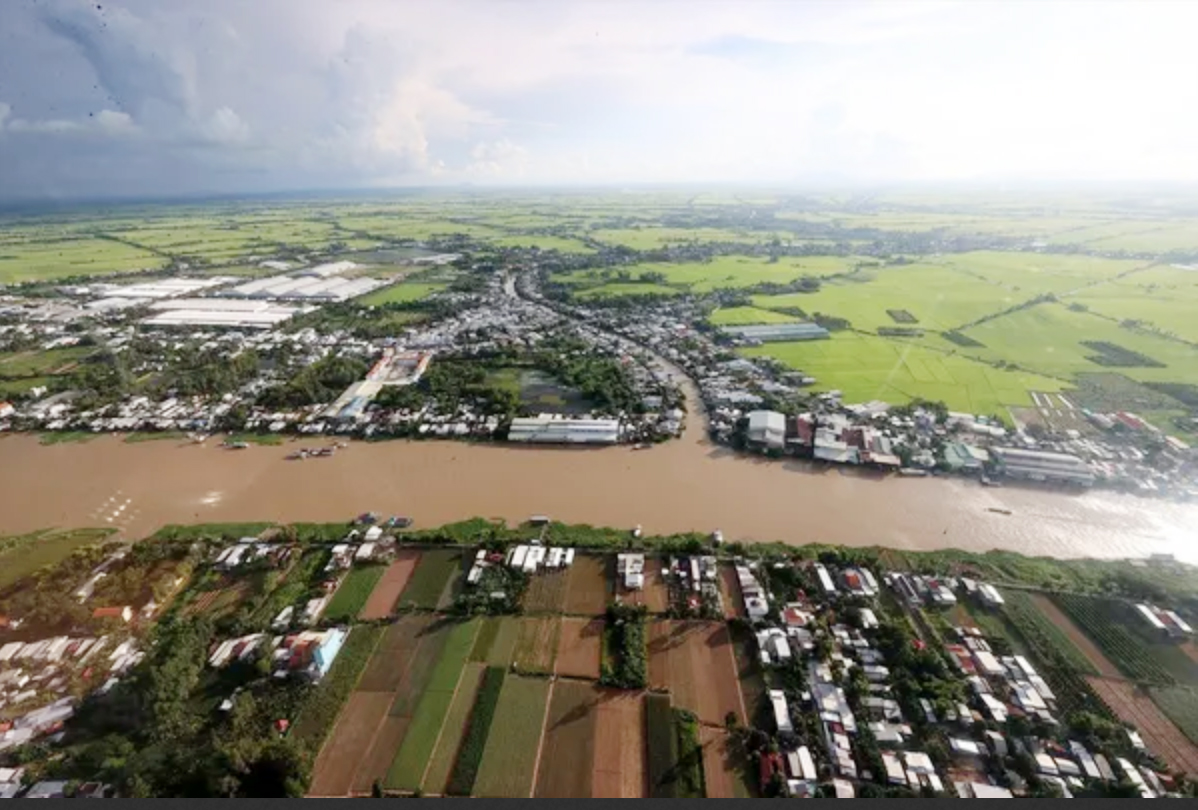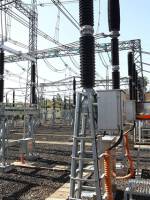
Deputy Minister of Agriculture and Rural Development Nguyễn Hoàng Hiệp on August 12 chaired a meeting on the progress of the World Bank-funded Mekong Delta Climate Resilience and Integrated Transformation Project (MERIT – WB11), which costs more than VNĐ17.75 trillion (approximately US$741 million).
According to the Ministry of Agriculture and Rural Development (MARD)’s Central Project Office, MERIT – WB11 will be implemented in the provinces of Đồng Tháp, Tiền Giang, Bến Tre, Kiên Giang, Bạc Liêu, Hậu Giang, Sóc Trăng, Trà Vinh, Cà Mau, and An Giang, aiming to enhance climate resilience in their agricultural production and rural communities.
The funding is the combination of a loan (over VNĐ13.09 trillion), counterpart funds (over VNĐ4.28 trillion), and aid.
It is focusing on implementing both structural and non-structural solutions to address issues, and improve and develop key product chains, thus increasing income for local residents. Additionally, it will step up the switch from fragmented, small-scale development to a more centralised model, while fostering the growth of agriculture-based economic clusters linked to urbanised, industrialised, and tourism areas. This shift is expected to create more jobs and generate higher incomes for labourers.
In March, the Prime Minister approved the project proposal. Currently, the MARD is in the process of collecting data and conducting preliminary research for a pre-feasibility study report, aiming for approval in October.
On August 7, the Government Office issued a statement summarising Deputy PM Trần Lưu Quang’s conclusions, with the Ministry of Planning and Investment tasked with coordinating with MARD to review feedback from the Ministry of Natural Resources and Environment (MONRE). This review aims to ensure that the MERIT projects in the 10 provinces align with sustainable development and climate adaptation criteria for the Mekong Delta. The results are to be submitted to the Ministry of Finance by August 15.
According to Nguyễn Tuấn Quảng, Deputy Director of MONRE’s climate change department, its review shows that the provincial projects generally meet the set criteria.
At the meeting, Hiệp urged the target localities to submit documents in response to the conclusions, confirming their commitment to ensuring the criteria, as well as the total investment and their ability to allocate counterpart funds.
The official also stressed the importance of expediting preparations to ensure that the MARD and provincial projects follow commitments with the World Bank as planned in 2025.
Vice Chairman of the Bạc Liêu People’s Committee Huỳnh Hữu Trí underscored the necessity of the MERIT projects for the delta provinces in addressing climate change, managing water resources, combating saltwater intrusion, transitioning agricultural models, and ensuring livelihoods. Bạc Liêu is set to implement three components related to 34 saltwater intrusion control gates, targeting a closed irrigation system for multiple purposes, including agricultural production.
Similarly, Vice Chairman of the Sóc Trăng People’s Committee Vương Quốc Nam noted that the project will fund the province’s construction of two boat locks, which will help the province better manage saltwater intrusion and complete its water control system.
(VNS)




